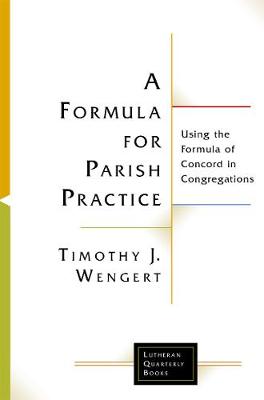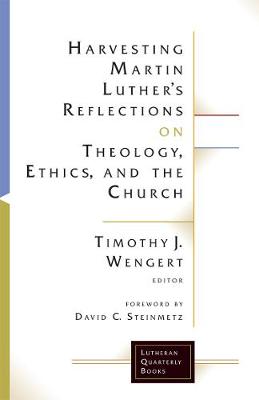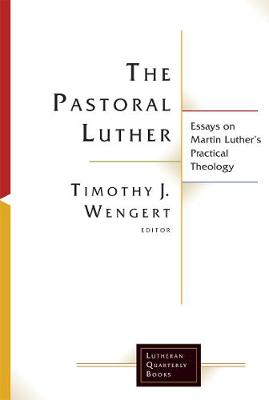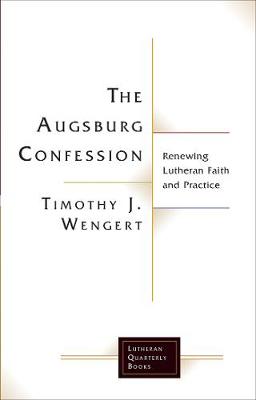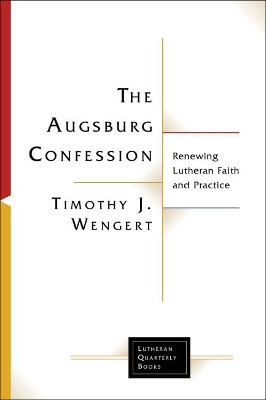Lutheran Quarterly Books
5 total works
This book combines a rich description of the (Lutheran) Formula of Concord (1577) with experiences in today's Lutheran parishes to demonstrate how confessional texts may still come to life in modern Christian congregations. Timothy Wengert takes the Formula of Concord, traditionally used as ammunition in doctrinal disagreements, back to its historical home, the local congregation, giving pastors, students, and theologians a glimpse into the original debates over each article. The most up-to-date English commentary on the Formula of Concord, A Formula for Parish Practice provides helpful, concise descriptions of key theological debates and a unique weaving of historical and textual commentary with modern Lutheran experience. Covering the entire Formula of Concord the book includes discussion questions at the end of each chapter.
Harvesting Martin Luther's Reflections on Theology, Ethics, and the Church
by Timothy J. Wengert
Published 1 January 2017
As profound as Martin Luther's ideas are, this giant of church history was concerned above all with practical instruction for daily Christian living. Harvesting Martin Luther's Reflections highlights this concern of Luther, mining his thought in key areas of doctrine, ethics, and church practice. Gathering noteworthy contributions by well-known Luther scholars from Europe and the Americas, this book ranges broadly over theological questions about baptism and righteousness, ethical issues like poverty and greed, and pastoral concerns like worship and spirituality. There are even rare discussions of Luther's perspective on marriage and on Islam. As a result, Harvesting Martin Luther's Reflections is both a state-of-the-art discussion of Lutheran themes and an excellent introduction for newcomers to Luther's work.
The Augsburg Confession is the single most-important confession of faith among Lutherans today. However, it is often taught either from a historical perspective or from a dogmatic one. Yet the context out of which it arose was far more practical and lively: marked from the outset as confessions of faith in the face of fierce opposition and threats. The original princely signers, while clearly outlining the teaching of their churches, were also staking their lives on the witness to the gospel that had been emanating from Wittenberg since 1517, when Martin Luther first published his Ninety-Five Theses. By situating both the history and the theology of this document within the practice and life of faith, Timothy J. Wengert shows just how relevant the Confession's witness is for today's Lutheran parishes and their leaders by unlocking how its articles can shape and strengthen the church's witness today.
